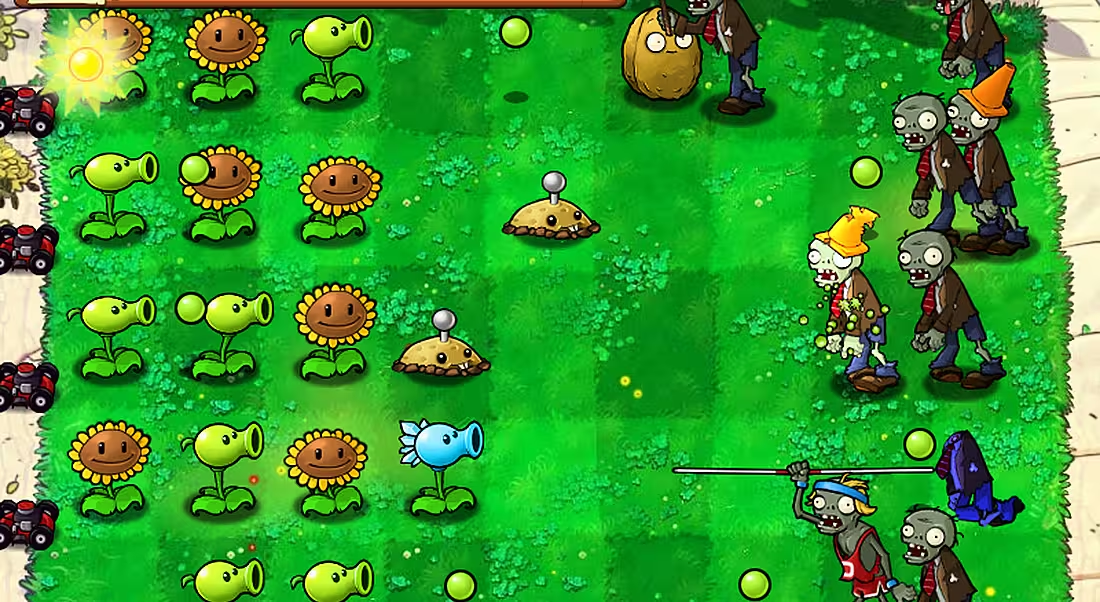The games industry is growing hugely in Ireland, with plenty of companies hiring right now. LAURA O’BRIEN finds out what it takes to land a dream job in this field.
Gaming has become a powerful industry, growing from a niche pastime to a multi-billion euro market. Such rapid growth has brought great opportunities, particularly in Ireland where companies such as Demonware, Jolt Online Gaming, PopCap Games, Havok and Gala Networks all have offices.
A survey carried out by Aphra Kerr from National University of Ireland, Maynooth, and Anthony Cawley from University of Limerick showed a 400pc increase in employment in the games industry in Ireland from 2002 to 2009.
For 2011, IDA Ireland predicts 9,000 to 10,000 digital jobs as a result of foreign investment, with particular growth for gaming. Even by taking a quick glance at jobs boards online, numerous games companies are searching for skilled employees who are passionate about the industry.
PopCap Games
One such company that’s hiring is PopCap Games. The casual gaming company behind titles such as Bejeweled and Plants vs Zombies
has benefited hugely from the meteoric rise of mobile and social games. It plans to double its workforce in Ireland, pushing it up to 110 employees in the next three years. Currently, PopCap Games is looking for C++ and Flash engineers.
I spoke with Viktorya Hollings, senior director of PopCap’s Mobile Games Studio, and John Halloran, engineering manager, about what it’s like to work for the company.
“PopCap Games is pretty young and multicultural. It’s quite fast paced with a lot of changes – new platforms, new technologies and new games – and that’s one of the most exciting things about working here,” explains Halloran.
“You’re working on cutting-edge technology, so there is a lot of opportunity for growth,” he says.
“We like people to have fun at work because we believe that if you’re having fun then that will come across in our games, so we make sure people are happy and that they’re looked after,” adds Hollings.
Considering how popular gaming has become, many people dream of breaking into the industry and making a career out of what they love. So what kind of individual does PopCap Games look for when hiring?
“We’re looking for two types of people – we’re looking for people who like innovating on technology, but we also want people who have games experience and are really enthusiastic about games and have either made them professionally or have a lot of games portfolio work showing their creativity,” explains Halloran.
“If they’re a technology person, then the thing they want to do most is innovate and work on cool technology, such as a new phone or new hardware. They’re the kind of people we want, to bring us forward on new platforms.
“If you’re a games person, usually you have a portfolio of games you’ve worked on. That enthusiasm in making games shows through, but you can be separate from a technology person – someone who understands the creative side of making games,” Halloran says.
Hollings points out that showing enthusiasm for the industry is a particularly powerful way of making yourself stand out. “You need to learn what you can from prospective companies in your area, play their games, offer to do work experience and intern programmes. It’s about showing that enthusiasm,” she says.
“A lot of people here do live and breathe games, no matter what department they’re in, although you don’t need to be a hardcore gamer playing endlessly each night. We do make casual games and we can make gamers out of everyone.”
Gaming sector and skills
Indeed, even though people with gaming skills are highly in demand, the gaming industry is still quite new in Ireland. Many companies have only started up or located here relatively recently and many courses have only just started, making it difficult to fill positions that require a lot of experience.
“It’s harder to find people in Ireland, so it’s about finding someone with the enthusiasm and the portfolio,” Halloran notes.
Newer graduates produced by these games courses are starting out strong. PopCap Games works with many courses for its intern programme, which Halloran says has produced great junior candidates. The company takes on two or three candidates a year and usually ends up hiring them when they’ve finished their education.
“For programmers, go to college and focus on all aspects of software engineering,” advises Halloran. “For those without experience or for junior people, the most important thing is to have a great portfolio.
“And for more senior people with experience, it’s about showing that experience plus a passion and enthusiasm for making games.”
Havok
Havok is another company in the gaming industry that is hiring. Founded in Dublin in 1998, it provides interactive software and services, such as physics engines and animation tools that have been seen in many high-profile titles, including Halo 3, Assassin’s Creed and Portal 2.
Havok is currently hiring for computer science and engineering positions. According to Dave Gargan, VP of engineering at Havok, much of the work at the company involves problem solving.
“What we tend to work on day to day is problems, usually around how people use our software to create new effects in games. That could be anything from people trying to create a huge scene of destruction to how people are trying to make their characters appear more realistic,” he explains.
“Typically what they’ll do is they’ll have some very specific way of using our engine software, so it’s a bit like we make engines for cars, but every single client wants to make a custom version.”
He points out that many of Havok’s employees are graduates from computer science, engineering and mathematics.
“Lots of the people in Havok have a strong mathematical background and I think that’s because maths taught today in secondary schools is one of the few subjects that really focuses on solving problems as opposed to learning facts.
“The Leaving Cert maths course sometimes can be seen as a series of puzzles where you really need to learn how to solve problems to do well. And that carries through to what we do, because we’re ultimately trying to solve different puzzles.”
As a result, Havok looks for people who relish in problem solving and possess a strong curiosity and drive to discover how things work.
“When we’re doing interviews we can normally tell from someone in the first 10 minutes whether or not they really have a passion for that sort of thing,” continues Gargan. “We’ll see if people are working on their own pet projects or if they find something they’re interested in and look at how it works – either a piece of software or something as simple as taking apart electronics at home.
“If you’ve an aptitude for these things, then that’s the right path to be on if you want to end up in the games industry because it changes so quickly,” he adds.
Mobile, indie and social games
One such change is the increase of mobile, indie and social games. These types of games have not only impacted the market, but have also given those targeting the games industry a new way to show off their skills. While many console games require a huge team and big budgets to create them, mobile, indie and social games may only need a team of two or three people with skills in design and coding.
Both PopCap Games and Havok say that releasing a game in these channels can be an excellent way of attracting attention from games companies. It’s easy to see why – it shows good initiative and displays the creative and technical skills needed to break into the industry.
Havok’s Gargan advises people wishing to enter the gaming industry not to specialise too early. He says that they should enter a general engineering or computer science course first and then complete a master’s in games development afterwards.
Above all, Gargan says people should take advantage of the vast resources available to leverage their skills. “When I was going through college, the internet was just starting up and we didn’t have the wealth of information that’s out there now,” he says.
“There are very few barriers for someone who’s genuinely curious to find out how absolutely everything works.”
Demonware
Demonware is another Irish gaming success story that’s looking to grow further. Founded by Dylan Collins and Sean Blanchfield in 2003, the company was acquired by Activision in 2007. It specialises in online software and services for many top titles, such as Guitar Hero and Call of Duty: Modern Warfare 2.
“Demonware is a little different from most gaming companies in that we’re not developing games per se, but features and technology to be integrated into the games and often then run as services – so the profile of people we’re looking to hire is somewhat different,” says Tony Kelly, CEO of Demonware.
He says the company looks for “world-class engineering talent” when hiring, with a propensity for open source. Demonware also seeks out candidates with expertise in business intelligence, security, data centre provisioning and networking and virtualisation, along with specific knowledge of Python, Erlang and Hadoop.
“Every day we deal with the same problems the Googles, Microsofts, Amazons, Twitters and Facebooks of the world have to deal with, including working on state-of-the-art infrastructure and hardware in high-density, large-scale data centres and networks,” says Kelly.
Referring to the work culture at Demonware, he says the company has been described as “what Google were like to work for when they were fun”.
“The explosive growth we’re experiencing – such as doubling of headcount for the third time in four years, growth in services from three people in 2007 to 30 plus and growing today – can be difficult to manage and do gracefully, but we work very hard to protect our independent status within Activision-Blizzard, the quality of life of our staff, as well as nurturing our unique culture. We work extremely hard at what we do, but we like to have fun while we do it,” explains Kelly.
“The folks at Demonware are ridiculously talented, top-of-their-game engineers who could work for any high-tech company anywhere in the world. The fact they choose to work for us tells its own story,” he adds.
Click to launch the full edition in a new window.





